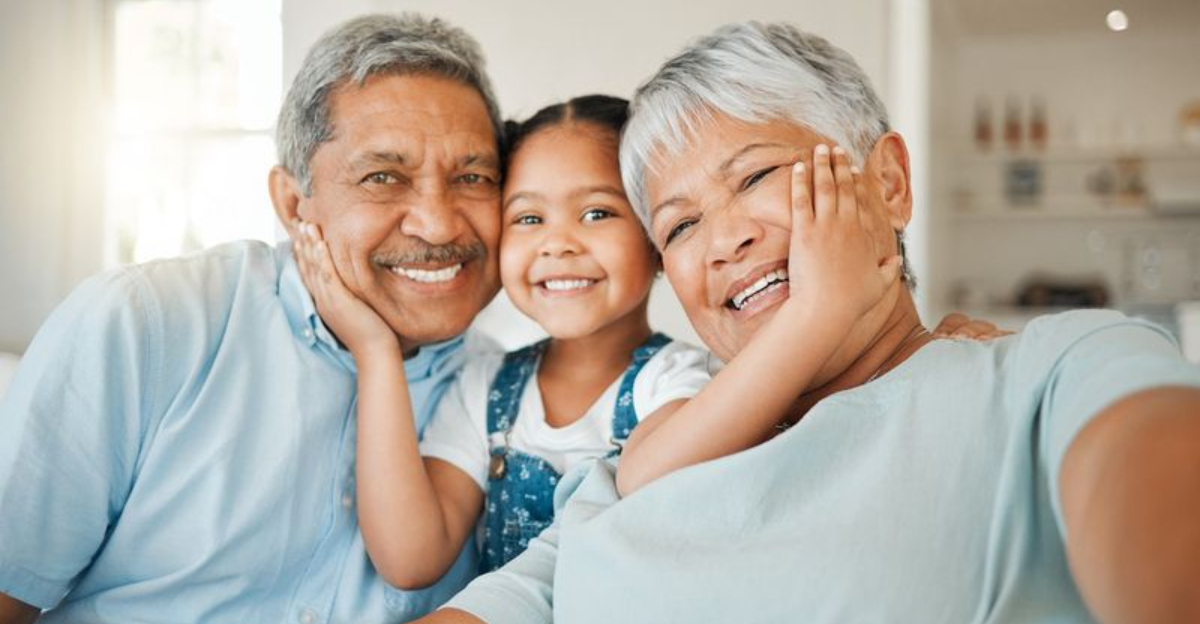16 Powerful Character Traits To Pass Down To Your Grandkids
You and I both know the world is full of noise. Kids pick up on what you do when you’re barely paying attention—sometimes more than what you say.
If you ever wondered what really sticks with them, it’s those unfiltered moments, the way you handle disappointment or the way you celebrate tiny victories. Grandkids remember those bits forever, not the Pinterest-perfect advice.
This isn’t some checklist to pin to the fridge. It’s about showing up real, flaws and all, and giving your grandkids something honest to hold onto. Here’s what actually matters—straight-up, no sugarcoating.
1. Honesty and Integrity
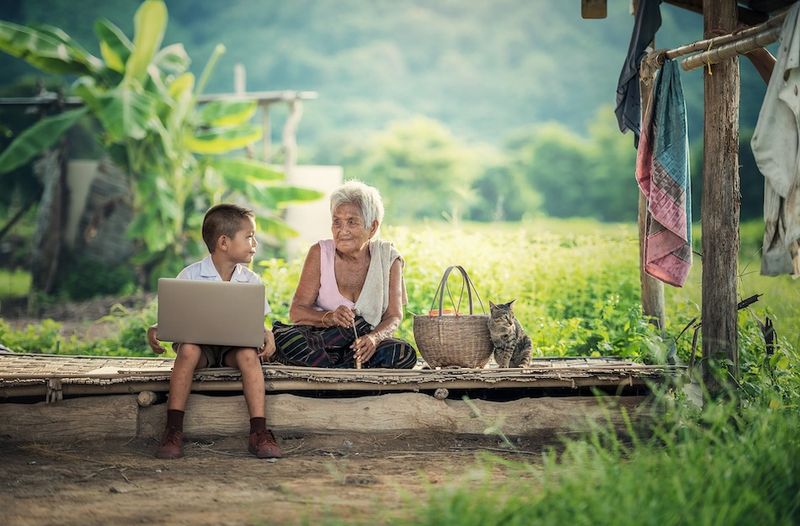
My Nana found a $20 bill in the grocery store parking lot. She didn’t hesitate—walked right inside and handed it to the staff. That moment stuck with me harder than any lecture about doing the right thing.
Integrity isn’t a speech you give. It’s the stuff you do when nobody’s clapping. Your grandkids see you own up when you mess up, and that’s how they learn what trust means.
Convenient honesty is everywhere, but actual integrity? That’s rare. Sometimes the hardest thing is admitting you were wrong in front of people you love. But if you model that, you’re giving your grandkids a roadmap for real trust, not just in others, but in themselves. It’s uncomfortable and worth it.
2. Kindness and Compassion
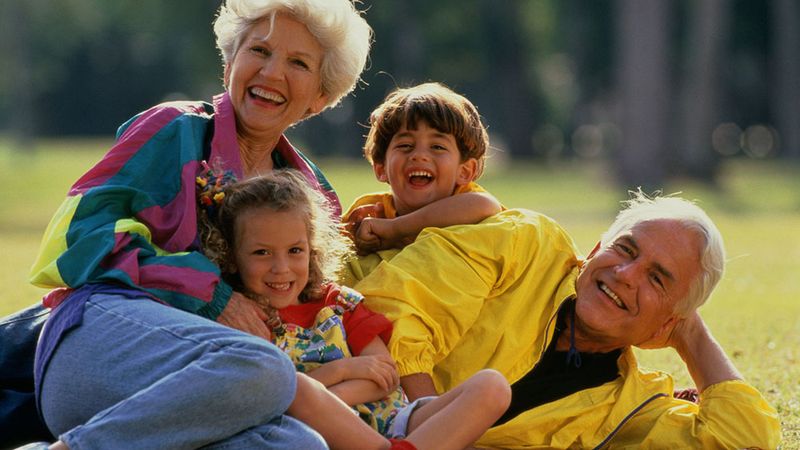
You know what I remember? My mom making soup for the neighbor who’d just lost her husband. No fanfare, just a quiet knock and a hot bowl on a rainy night.
Kindness isn’t a hashtag. It’s the little things: a hug after a tough day, listening when someone’s hurting, or helping when nobody’s watching. Your grandkids notice how you treat people when you think no one cares.
Compassion doesn’t mean fixing everything. It means showing up, flaws and all, and letting someone else know they matter. If you model that, it sticks—sometimes for generations. Kids crave that softness more than you realize.
3. Patience and Understanding
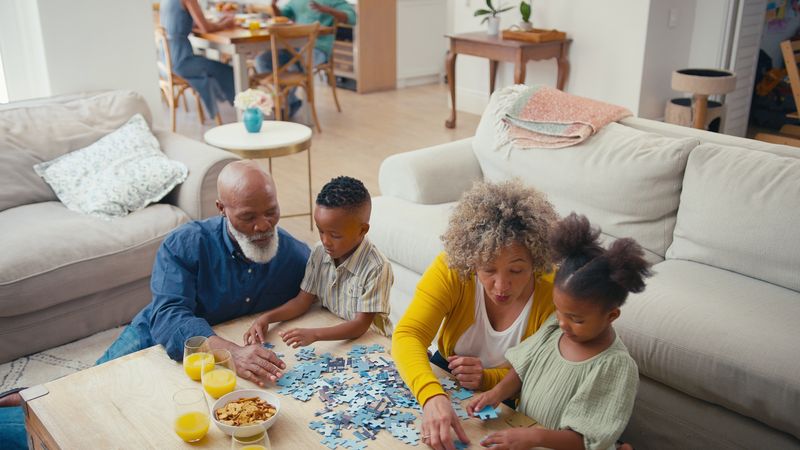
You want a crash course in patience? Try teaching a five-year-old how to tie their shoes. The laces knot, tempers flare, and it’s so tempting to just do it yourself.
Instead, you breathe and wait. You let them fumble, you let mistakes happen. That’s what sticks—kids learn how to handle frustration by watching you handle theirs.
Understanding isn’t about always agreeing. It’s about making space for someone else’s struggle, even when it drags out longer than you’d like. That kind of patience is a gift, and your grandkids will feel it every time things go sideways.
4. Responsibility and Dependability
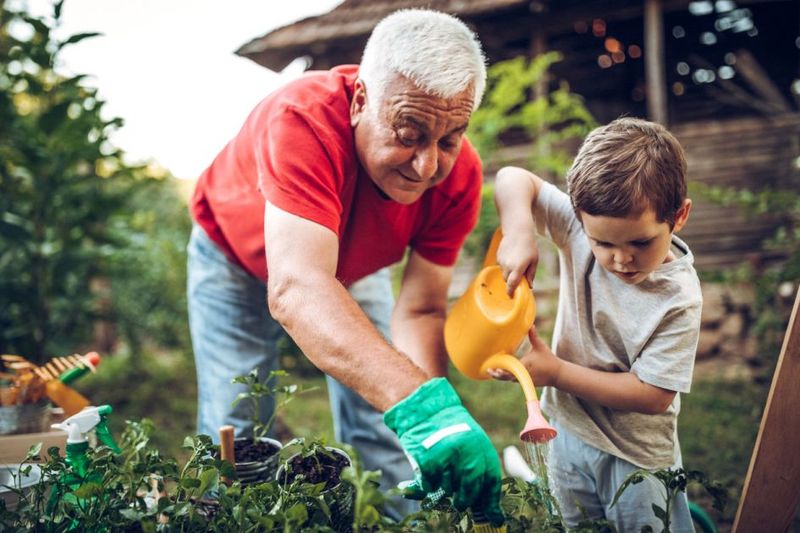
Some kids grew up with promises that got broken or rides that never showed up. Being dependable—actually following through—that’s a rare superpower these days.
Responsibility isn’t just about chores or bills. It’s showing up when you say you will, keeping your word, and letting your grandkids see you handle what needs to be handled.
Your actions are a quiet anchor. When you show them reliability, you help them feel safe in a world that’s always shifting. They start believing in their own ability to be counted on. That’s the foundation for trust, confidence, and the guts to take on the real world.
5. Humility and Gratitude
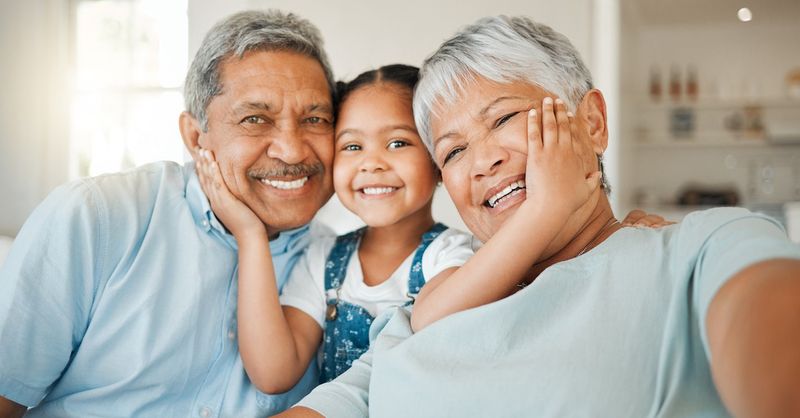
Do you ever see someone brag about every little win? Exhausting, right? True humility is quiet—it’s letting others shine and knowing you’re enough without all the spotlight.
Gratitude is about seeing what’s good even when things are messy. Saying thank you for the small stuff, like a homemade card or an extra cookie, teaches kids that everything isn’t owed.
When your grandkids see you own mistakes or offer genuine thanks, it resets what matters. Humility isn’t about shrinking yourself; it’s about making space for others and recognizing life’s gifts—no matter how ordinary.
6. Perseverance and Resilience
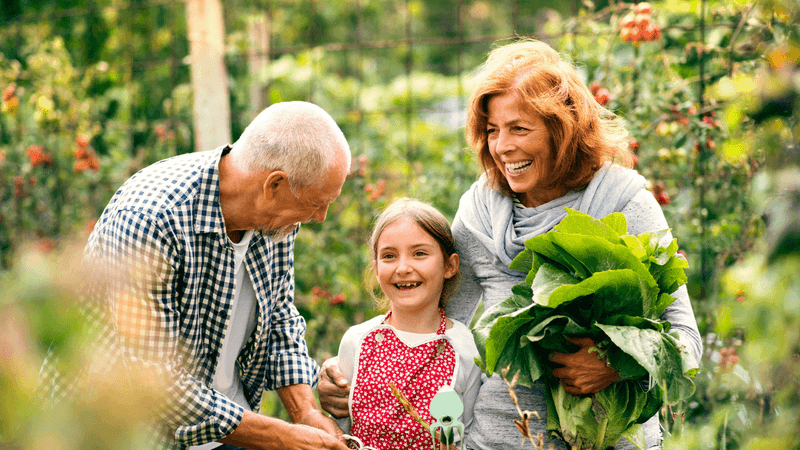
That tree you planted out back? It took years before it was anything more than a twig. But you kept watering it, through storms and droughts, because you knew good things take time.
This isn’t glamorous. Most of the time, it’s ugly—sweat, failure, and starting over. Your grandkids learn grit by seeing you keep going when it’s easier to quit.
Resilience is the bounce, not the break. It’s laughing after a setback and getting back on your feet. When kids see you weather hard seasons, they believe they can handle their own storms.
7. Respectfulness and Good Manners
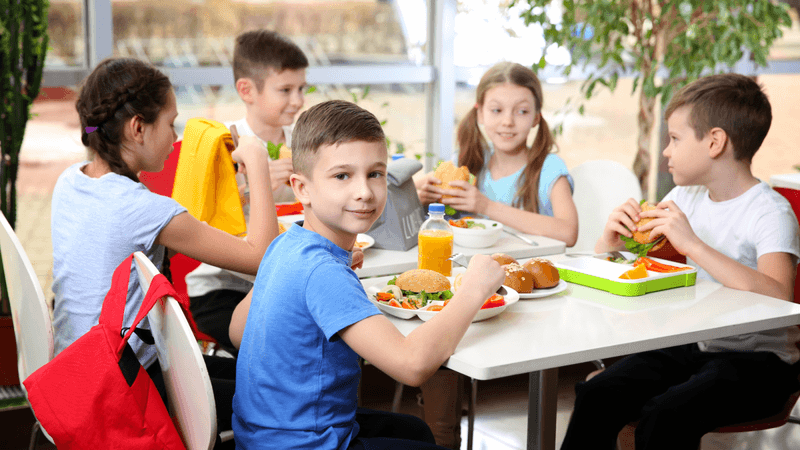
This is more than please and thank you—it’s the way you look someone in the eye when they’re talking, or how you respect a kid’s opinion, even if it’s wild.
I watched my grandma greet everyone, from the mailman to the loud neighbor, with the same steady respect. That didn’t mean she let people walk over her. It meant she knew her worth and theirs.
Your grandkids absorb the way you handle conflict, disagreement, and celebration. They carry that tone with them long after dinner is cleared. If you want to raise respectful kids, let them see it at your table.
8. Generosity and Selflessness
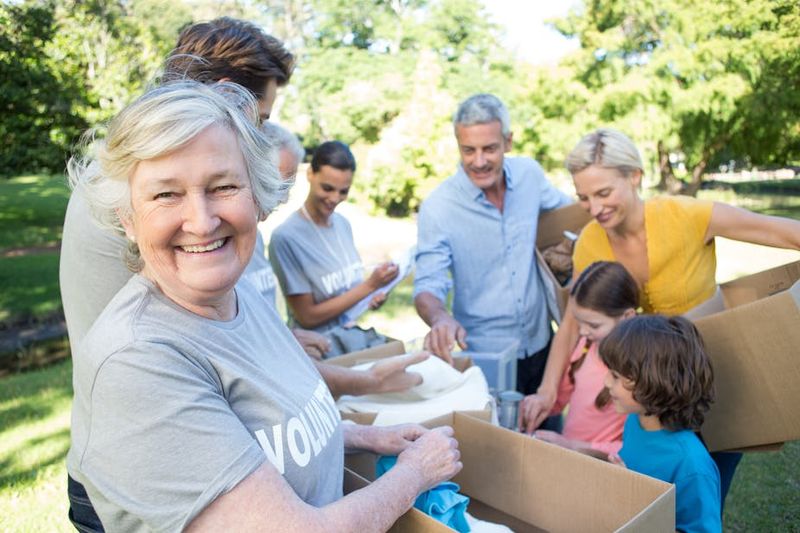
Do you notice how giving away your last piece of pie always tastes sweeter? Generosity doesn’t show off, it just gives—time, attention, love, or leftovers.
Selflessness is about moving through the world with your hands open. You don’t expect payback. You do it because someone else needs it, right now.
When your grandkids watch you give without grumbling, they learn that life isn’t just about collecting. It’s about contributing. At times, just showing up for someone else is the best lesson of all.
9. Curiosity and Love for Learning
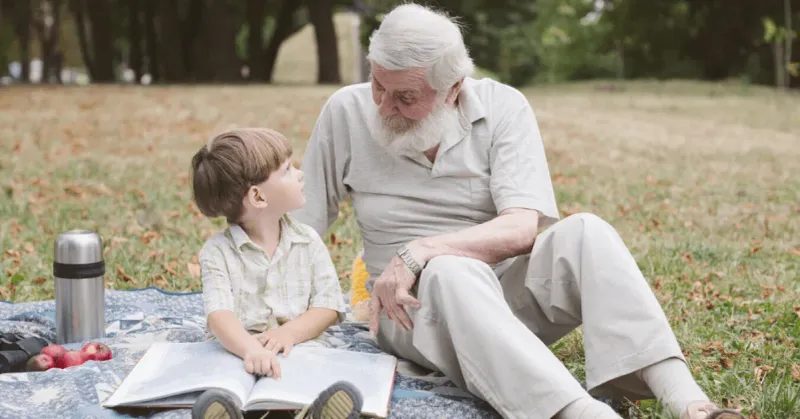
It’s those times you give it a shot, and try to figure out things with your grandkid. Maybe it was some new toy that needed fixing. Or some new life lesson. Either way, the important part is, you didn’t pretend to have all the answers.
Kids catch your hunger for learning, not from lectures, but from watching you get excited over weird facts or new hobbies. If you’re willing to ask questions, they’ll know it’s okay not to know everything.
Real curiosity keeps life interesting. Every time you say, “Let’s look that up,” you’re teaching them that learning isn’t homework—it’s a lifelong adventure. Even if you forget half of what you read, the wonder sticks.
10. Fairness and Impartiality
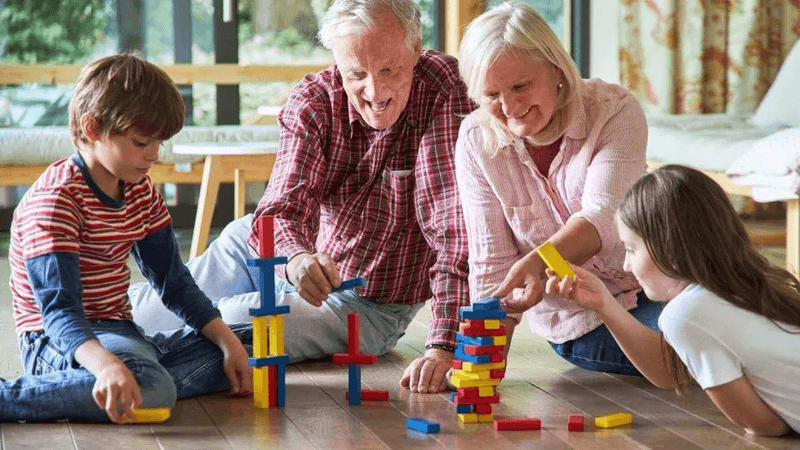
You want a lesson in fairness? Watch a grandparent mediate a squabble over the last slice of pizza. No favorites, no shortcuts—just a clear call, even if it means splitting it down the middle.
Impartiality is harder than people admit. It’s about checking your bias, even when your gut wants to bend the rules for the kid that reminds you of yourself.
Your grandkids learn justice by watching you treat everyone with equal dignity. When they see fairness in action, they start to trust the world (and you) a little more. That trust is a seed that grows into courage.
11. Optimism and Positivity

When the sky turned gray, my grandma brought out her paintbrushes and made rainbows on the window. She didn’t pretend the storm wasn’t there. She just added a little color.
Optimism isn’t about ignoring pain. It’s about choosing to see possibility, even when things are heavy. Your grandkids don’t need fake cheer—they need to see you find hope when hope is hard.
Positivity is contagious, but only if it’s real. If you keep showing up with a spark, even when you’re tired, you teach kids to look for light instead of waiting for it.
12. Strong Work Ethic
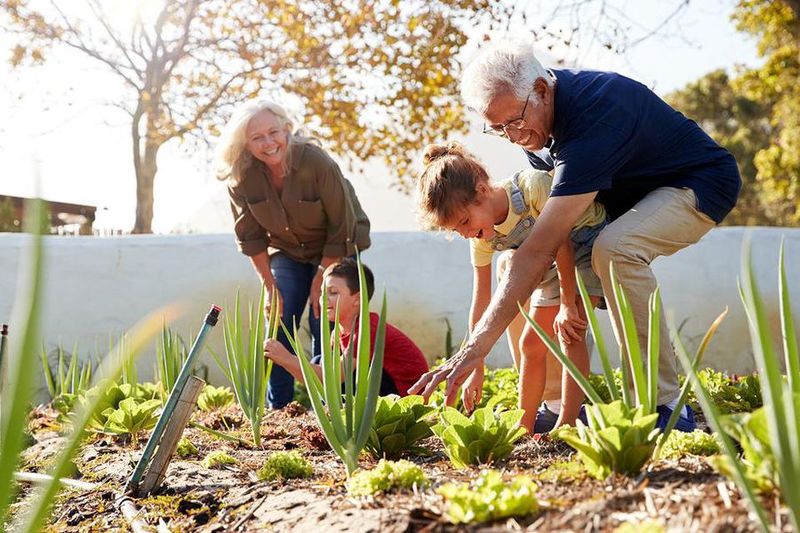
Work ethic isn’t a lecture; it’s what you do when nobody’s grading you. My grandpa never said, “Be diligent.” He just kept stacking firewood until the job was done.
When you work hard and don’t cut corners, your grandkids notice. It’s less about chores and more about pride—the kind that comes from knowing you gave your best.
Let them see you finish what you start. Let them see you care, even when it’s boring or tough. That’s the kind of effort that sticks long after the leaves have blown away.
13. Self-Control and Discipline

This isn’t about being strict; it’s about setting boundaries for yourself when no one else will.
Self-control shows up in small moments—one less cookie, an extra walk, biting your tongue when you’re angry. Those tiny decisions matter more than big speeches.
Kids learn discipline from what you say no to, not just what you say yes to. When they see you make choices with intention, they start believing they can too.
14. Accountability and Honesty
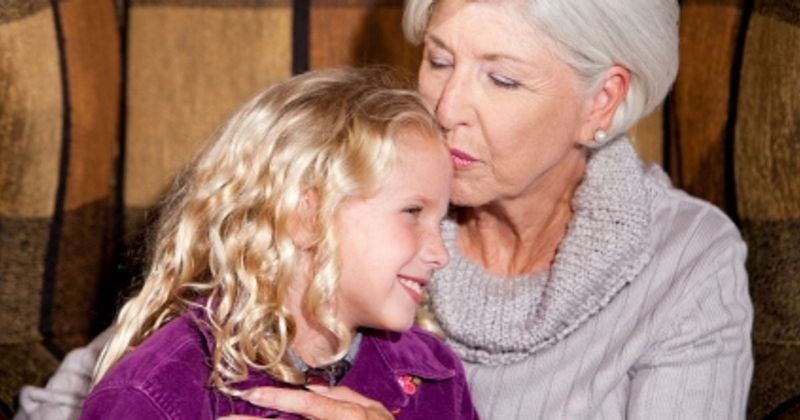
Owning your mistakes is harder when small eyes are watching. But those are the moments that build trust, not tear it down.
Accountability isn’t about shame—it’s about saying, “I messed up, and here’s what I’ll do next.” Your grandkids need to see it done, not just talked about. That’s how they learn honesty isn’t just a rule. It’s a practice.
A real apology, a genuine fix, and moving on—sometimes that’s all it takes to show them strength isn’t about never being wrong. It’s about getting back up and doing better.
15. Love and Unconditional Support
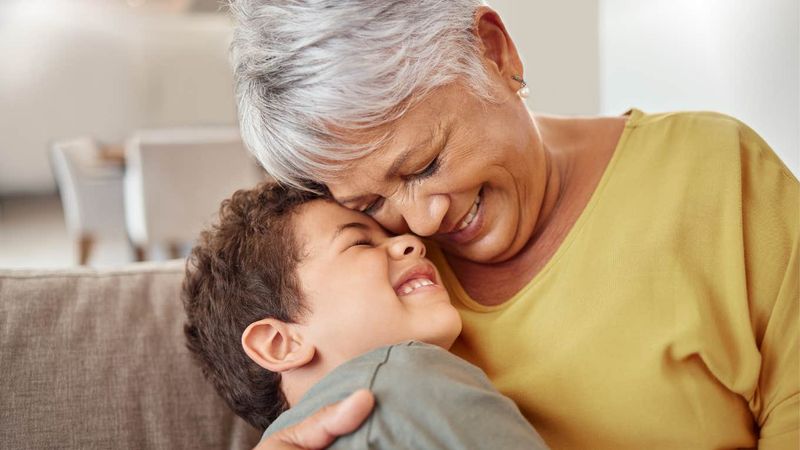
Unconditional love is messy. It means cheering for your grandkid when they win, but also holding them after they mess up. There’s no scoreboard, no tally.
Support is in the quiet, everyday things—making room for their wild ideas, showing up to the concert even when it’s off-key, or sitting through the same story for the tenth time.
When your grandkids feel that steady backing, they become braver. They know, deep down, there’s someone who sees all their mess and loves them anyway. That’s a superpower that lasts longer than childhood.
16. Courage
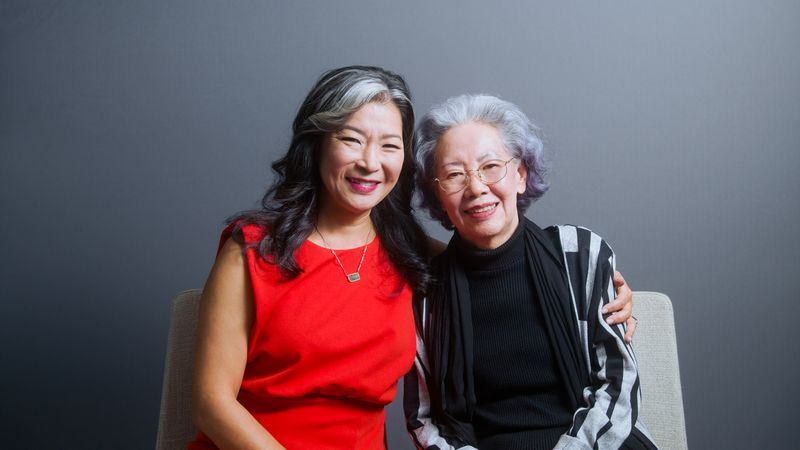
Standing on the edge of the diving board, knees knocking, I heard my grandpa whisper, “You’ve got this.” Sometimes, courage is borrowed from someone else until you find your own.
It isn’t the absence of fear. It’s choosing to act, even when you’re scared. Your grandkids learn what bravery looks like in real life, not from cartoons or pep talks.
Every time you say yes to something new or admit you’re scared but try anyway, you let them know it’s okay to be afraid. The lesson? Fear doesn’t get the last word. Action does.

